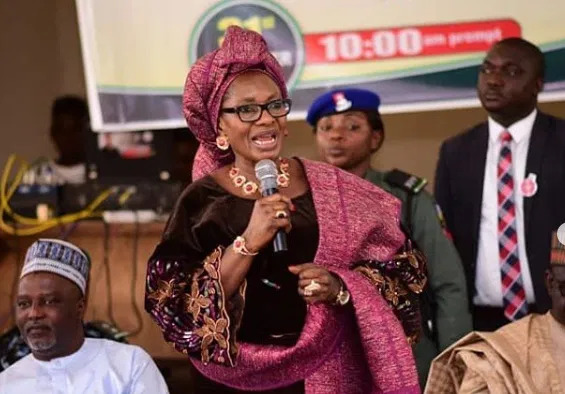As countries across the world begin easing Corona Virus lock downs, and reopening their economies, not many have fully acknowledge the roles women played in the heady days when everyone had to stay home and stay safe. Although the jury is still out, assessing the impact of the pandemic on marginalized groups, including women, anecdotal observation alone can provide some insights on the role women played, would continue to play, even after the lock downs.
Women from different walks of life narrated to The Explainer who COVID-19 lock downs led to more care giving work in the home. And because this work is seen traditionally as part of the role of women within the home, it was largely unvalued and unpaid. A study released in January by Oxfam chronicled how economic inequalities were deepening across the globe due to what it described “a flawed and sexist economic system that values the wealth of the privileged few, mostly men, more than the billions of hours of the most essential work –the unpaid and underpaid carework done primarily by women and girls around the world.”
The report went on to exemplify these assertions by stating that “tending to others, cooking, cleaning and fetching water and firewood are essential daily tasks for the wellbeing of societies, communities and the functioning of the economy. The heavy and unequal responsibility of care work perpetuates gender and economic inequalities.”
Unfortunately, COVID-19 appears to have further accentuated the unequal burdens placed on women. This view was endorsed by Director Africa Peer Review Mechanism (APRM) AUDA-NEPAD, Adimula Adefunke Cecy, who spoke to The Explainer. She agreed that the lockdown of the country was important to contain COVID-19, but also observed the strain it would place on women. This perspective was also echoed by Minister for Women Affairs, Mrs. Paullen Tallen who noted that women, as the family focal person and central home managers would have to bear the burden of round the clock care of other members of the family.
She said, “In practical terms, the additional challenges on Nigerian women would include amongst others: reduced participation in food production and the agricultural value chain, increased pressure on food preparation, serving, preservation, and storage the informal food vending sub-sector. Also, caring for children, the youth and elderly and ensuring continued education for school age children, maintaining adequate sanitation levels of homes, neighborhoods and the community will be added responsibilities.”
Part of the government response to the situation was an appeal to corporate bodies to extend their support to women toiling on the home front in the periods of the lock down and beyond. “She said, on behalf of Nigerian Women, I appeal to corporate organizations and well-meaning businessmen and women to understand the peculiar predicament of women in managing homes at this crucial time and extend support and palliatives to buffer the homes and assist the ministry in safeguarding lives.”
On her part, the Executive Coordinator of the Ajoke Ayisat Afolabi Foundation, Foluke Ademokun, expressed worries about the lack of information on the gender dimensions of COVID-19. She said while so much information has been shared about the origin and spread of the pandemic, not so much information has been provided on how the disease affects men and women differently.
“Regular updates on disease spread are important, but as it is, across the world and in Nigeria, these updates are silent on the gender dimension of the pandemic, and this is dangerous,” she warned. Although there are no official figures yet, gender activists like Afolabi are apprehensive that women’s soles as caregivers, and their constant contact with children could put them in harm’s way in terms of contracting and spreading the dreaded virus.
She said: “Therefore, underlying social differences between men and women should feed into the government response in a manner that addresses their specific needs. In order to effectively contain COVID-19, the government should commit to capturing gender relevance data to serve the planning purpose that will enable key agencies offer gender responsive directives to the citizens.”
Given the burden, and the additional stress that many women have had to bear as care givers and home managers, gender activists are of the view that the economic response should carefully consider these roles. According to Ademokun, the government’s broad based stimulus to enhance economic stability is commendable, but a gender-sensitive economic package should be designed. This she said should be an important part of the response because it would capture and reward the participation and contributions of women.
Her words: “The intervention should be programme to deliberately accommodate sectors, largely operated by women that would be impacted negatively by the outbreak. It is common knowledge that women more than men have lesser access to productive assets, are more likely to live in poorer housing conditions, and more likely to be poorer as heads of households, particularly, as widows, half-widows or single parents. The pandemic is more burdensome on women because the expectation is that a woman should take care of everybody and now that everybody is at home, the woman has to wash, cook more, and educate; these can be very stressful for the woman.”






















